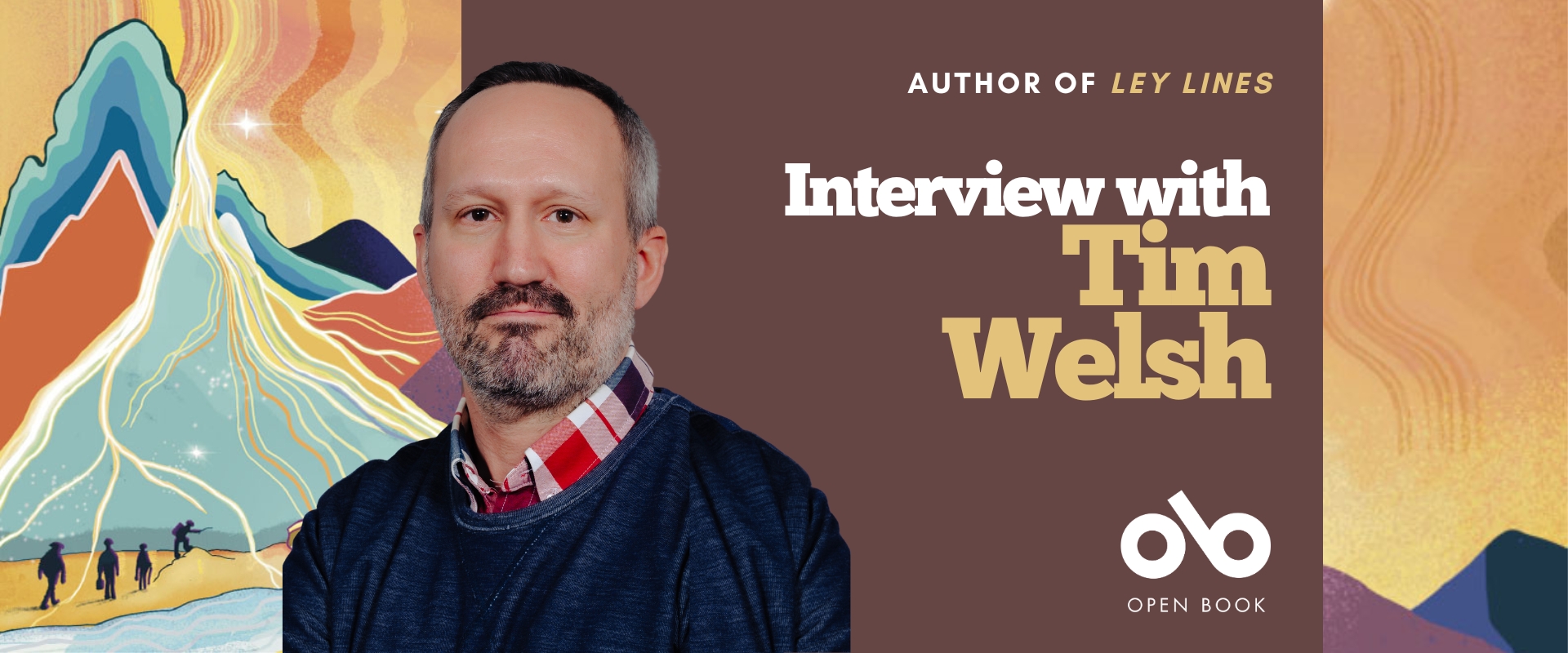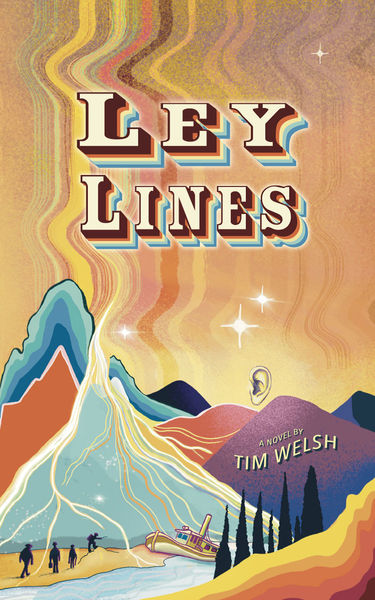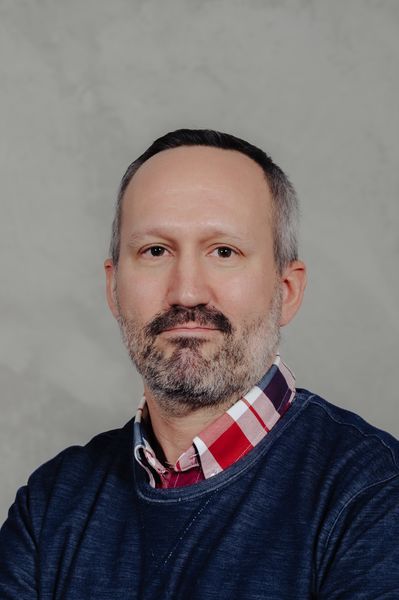Tim Welsh's Debut Novel, Ley Lines, is a Refreshing, Intimate Take on Frontier Life
Readers have seen frontier tales about the gold rush and mining boom towns before, many of which carry familiar tropes and trappings. But, our featured author today has written an original work that upends much of what we've come to expect from stories about this period in North American history.
In Ley Lines (Guenica Editions), debut novelist Tim Welsh sends us to the waning days of the Klondike, and the imaginary town of Sawdust City, nestled in the Yukon. There we find prospector Steve Ladle as he embarks on an expedition to the top of a nearby mountain that a local con artist has hired him to explore. What Ladle finds there seems to have the potential to reverse the town's dwindling fortunes, but these actions instead start a catastrophic chain of events that lead to the town's ultimate ruin.
After the dust settles, a group of characters are dispersed across the Klondike, and have to find a way to deal with the fallout from this collapse. Their personal struggles are met with historical and supernatural forces that weave together as they try to find their place in this changed world. And amidst all of this we are thrust into a story that turns away from the usual violence and depravity that underpin so many frontier novels. Instead creating a nuanced and intimate portrait of the history of these lands and the people that tried to make a life on this wild and uncertain terrain.
Check out this Storytellers Fiction interview with the author, which we're thrilled to share with our readers!
Open Book:
Which authors have inspired you and/or influenced your work?
Tim Welsh:
One influence that is referenced explicitly in the text and in the cover art is Robert Service’s poems — specifically the 80s Kids Can Press editions of “The Cremation of Sam McGee” and “The Shooting of Dan McGrew,” with art by Ted Harrison. I’ve been describing Ley Lines as “psychedelic Canadiana” and I think Harrison’s illustrations fit that bill, too.
What interests me about the Klondike and, more specifically, about the way it’s presented in the Service/Harrison books, is that as much as it is part of our cultural heritage, there’s an imagined, mythic quality to it that’s almost more important than the historical reality.
And I think there is incredible creative potential in that tension. In some respects, this is where the power lies in pairing Harrison’s wild illustrations with Service’s rather straightforward, narrative poetry. It sits in a space between the familiar and the bizarre, which is, in many ways, where I think Ley Lines tries to sit, too.
Your CanLit News
Subscribe to Open Book’s newsletter to get local book events, literary content, writing tips, and more in your inbox
OB:
How have you bent or broken the rules of these established literary lineages to develop your own style and voice?
TW:
Early in the writing process for Ley Lines, I realized I didn’t want to make something gritty and ultra-violent — it just seemed like too obvious a direction to go in, and it wasn’t really true to what I look for in a story. Many other books set during the Gold Rush, or “frontier” narratives more broadly, have done a better job examining themes like survival, greed, individualism, etc.
What was more interesting to me was the idea of community: what happens when you take a bunch of people from disparate backgrounds, with differing objectives and motivations, cram them together in this weird, remote place, and set them to this weird, remote task? History, memory and myth were the themes I was drawn to — specifically, how we create and process them as a collective.
OB:
Do you see your work or work like it helping to forge a new path in CanLit, or the broader literary landscape?
TW:
I can’t imagine my little book is going to make a dramatic impact on anything. But I would love to see CanLit in general get weirder, more ambitious, more, well, literary, for lack of a better word. Not that there aren’t people doing that, or that there isn’t a place for smaller-scale, more human stories, but it does feel to me as if the full potential of the novel as a form is somewhat unrealized at this moment in time.
But what do I know? Ultimately my only litmus test for my own writing is, “Is this the kind of book I would enjoy reading?” It’s not always an easy question to answer!
OB:
What new voice excites you at the moment?
TW:
Maybe not individual voices but I do think Invisible Publishing and Radiant Press are really raising the bar for indie CanLit these days. They both do such a great job curating their fiction selection and taking risks on more adventurous/out-there titles. I’m a big fan of both of them!
OB:
What is the next story you’re working on, whatever form it may take?
TW:
I’m pretty far along into a second novel, and an idea for a third is gestating in the back of my mind. It’s been an interesting experience. When I started Ley Lines, getting published didn’t seem like it was in the realm of possibility. I was working in an art gallery and had a lot of downtime during the day. The band I was playing in had broken up; I started writing mostly because I felt I needed a new creative outlet.
But as things progressed and I grew more confident in what I was working on, I had to start taking myself seriously as a writer, too. There were a lot of amateurish things to correct: I scrapped multiple characters and subplots; reworked the ending; fixed a lot of issues with inconsistent tenses, timelines that made no sense, etc.
Now, as I’m working on new stuff, going in with the mentality that, yeah, there’s at least more of a chance of this getting out into the wider world, it changes the process. I’m more aware of the technical issues, and spending more time on plotting, research, character development — all the things I kinda had to walk back into with Ley Lines. So I think it will be a somewhat less torturous path to creating something that I’m proud of and that holds up. But we’ll see!
______________________________________
Tim Welsh was born in Ithaca, New York and raised in Ottawa, Canada, where he completed an MA in English Language and Literature at Carleton University. He now lives in Toronto. Ley Lines is his first novel.






